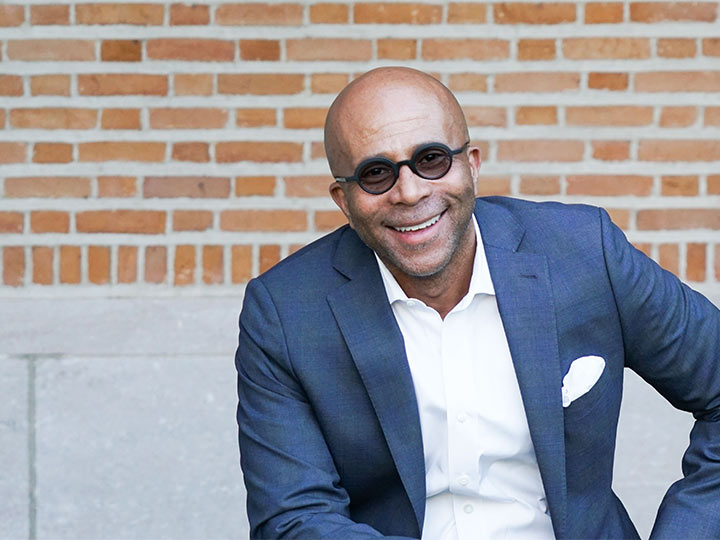Professor Anthony Pinn speaks on the intersecting philosophies of African-American Theology and advocates a new approach to spread humanistic thought.
Professor Anthony Pinn is the Agnes Cullen Arnold Professor of Humanities at Rice University. He earned his B.A. from Columbia University and M.Div. and PhD in the study of religion from Harvard University and specialises in African-American theology He is an author, humanist, and public speaker. Among other sterling accomplishments, Prof. Pinn is the Founding Director of the Center for Engaged Research and Collaborative Learning (CERCL) at Rice University.
Scott Douglas Jacobsen: Your specialisation is in African-American religion, constructive theology, and humanist thought. Where do these source themselves in personal or professional life?
Professor Anthony B. Pinn: I’m not sure what you mean. If you are asking if there is something both personal and professional about these interests, my answer is yes.
Jacobsen: As the executive director of the Center for Engaged Research and Collaborative Learning, what tasks and responsibilities come with the position? What are the main research questions of the centre?
Pinn: I developed the Center some years ago as a way to promote critical thinking skills and effective communication strategies both on and off campus. Our work, both in terms of programming and research – involves recognition of the necessary relationship between the University and the larger city of which it is a part. In this way, we promote active learning and scholarship that is informed by and responsive to the conditions/concerns of given communities.

Jacobsen: You did doctoral work in the study of religion at Harvard University. What was your main research question? What were the main findings from your doctoral research? What have been the general findings of subsequent but associated research initiatives in professional life?
Pinn: My initial concern was with the ways in which Christians response to the issue of theodicy; that is, what can be said about God in light of human suffering in the world. I was particularly interested in how humanism challenges typical answers to this question, and how this mode of humanist challenge to theism develops within African American communities. This initial research interests developed to include attention to forms of cultural expression, such as hip-hop, that tend to receive limited attention, as well as more in-depth examination of the nature and meaning of humanism in the United States.
Jacobsen: What is black religious aesthetics? How does this differ from other religious aesthetic tied to ethnic or race groupings? What are the criteria for demarcation between different types?
Pinn: By black religious aesthetics I mean to highlight the style, the tone, the ‘mood’ that informs religious thinking and doing within African American communities. It is my way of highlighting the importance of cultural production and embodiment for a “think” understanding of religiosity. I think there are cultural codes embedded in the workings of various racial groups – certain styles presentation associated with various groups. One gets a sense of this by examining the cultural production of particular groups. However, it is important to remember that I am not essentialising these various groups. I’m not saying, for instance, that all African Americans do this or that, or, all white Americans do this or that.
Jacobsen: What is the sole definition or soul, if you will, of African-American Humanism?
Pinn: African American humanism is a approach to thinking and doing that privileges materiality and understands life to be confined to historical contexts – no transhistorical realities, no divine forces. African American humanism says “YES” to the humanity, the importance, and vitality of black life within the context of a world conditioned to disregard blackness. It embraces certain elements of the Enlightenment and the Modern world while also pointing out the manner in which modernity also entails deep damage and disregard of non-European peoples.
Jacobsen: Thank you for the opportunity and your time, Professor Pinn.






Article Discussion